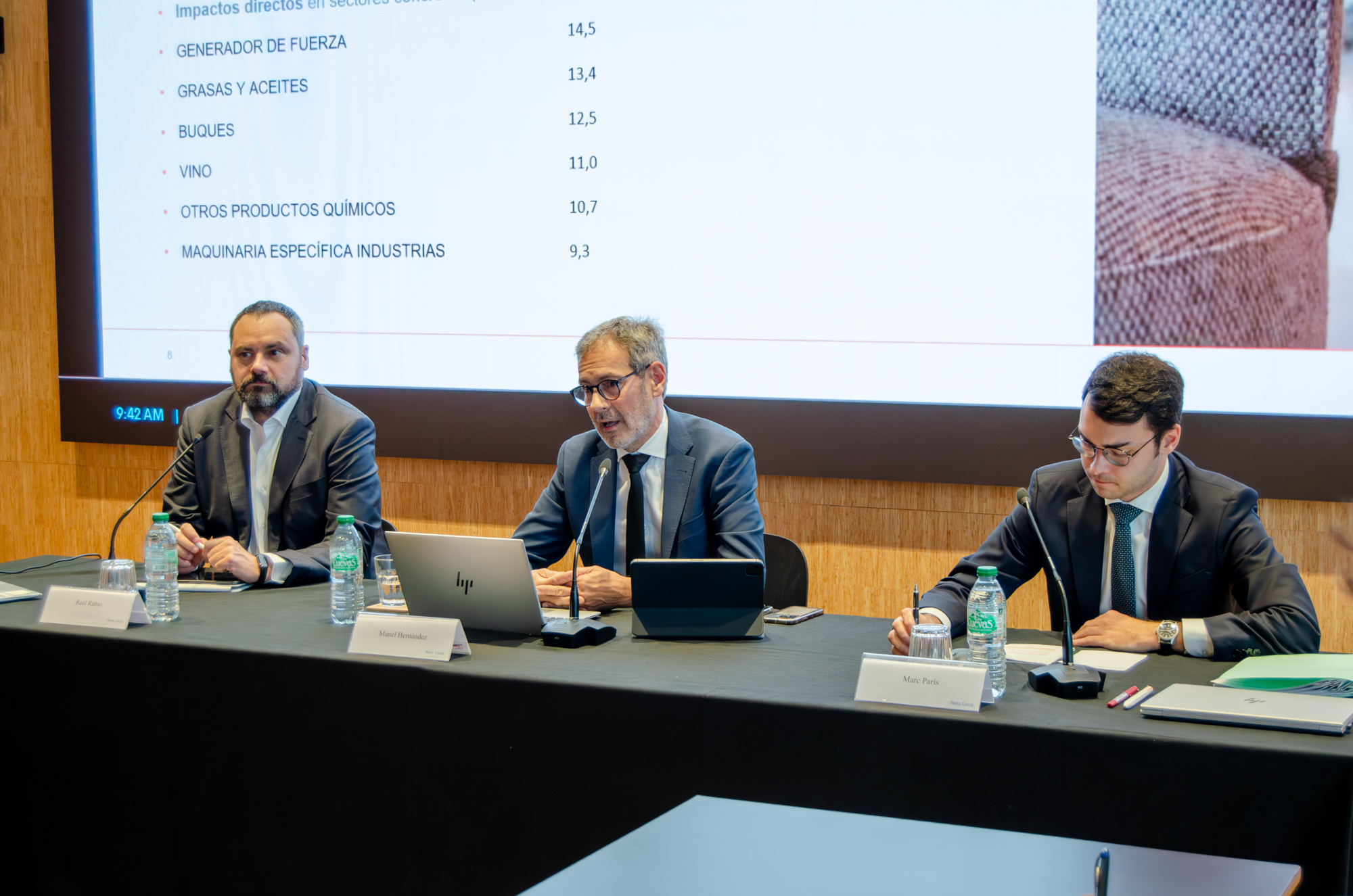Pérez-Llorca’s Employment, Compensation and Benefits practice area organised the “New workplace obligations in the field of artificial intelligence” session at its Barcelona headquarters, as part of the ‘Pérez-Llorca Labour Law Update’ cycle. The conference was attended by Manel Hernàndez and Marc París, partner and lawyer, respectively, of this practice area, and Raúl Rubio, Intellectual Property and Technology partner.
Manel Hernàndez opened the event by introducing the speakers and addressing the main trends that will shape employment law over the coming months. These included the impact of the US tariffs on strategic sectors of the Spanish economy, with a particular focus on labour planning for affected companies, as well as the concerning rise in absenteeism. “The 10.5% increase in sick leave due to common contingencies requires companies to combine control measures with respect for workers’ rights,” said the Pérez-Llorca partner. In this regard, he proposed a review of temporary incapacity allowances, as well as the adoption of individualised follow-up policies as preventive tools, always within the legal framework and with full respect for workers’ privacy.
Hernández also highlighted the Draft Law on Industry and its regulation on prior warnings in the event of industrial capacity loss. He pointed out that this regulation introduces the requirement to file a specific prior notification, nine months ahead of time, with the Secretary of State for Industry and the workers’ legal representatives when a company plans a reindustrialisation process. “This obligation affects scenarios such as a 65% reduction in the workforce, 500 redundancies at one site or the loss of 750 jobs in one region. We are talking about a notice period which, due to its length, can create unnecessary rigidities in business decision-making,”·he explained.
Then, following the usual ‘Pérez-Llorca Labour Law Update’ session format, Marc París analysed the top three most significant judgments from recent months. These included the Supreme Court ruling of 5 March 2025 on contract succession, which prevents companies from avoiding subrogation through prior agreed dismissals. “This strengthens the protection of workers against strategies that seek to circumvent the application of Article 44 of the Workers’ Statute,” Paris explained.
In the third part of the conference, Raúl Rubio gave a comprehensive overview of the new regulatory framework on artificial intelligence and its application to the workplace. He began his speech by reflecting on the current context, where technological progress has overtaken regulatory development. “We are facing a similar scenario to the one we are experiencing with data protection regulations, where technology is moving faster than the law, creating additional complexity when it comes to ensuring legal compliance,” said the Pérez-Llorca partner.
In this regard, Rubio provided a detailed analysis of the EU AI Act’s implementation timetable, highlighting 2 August 2025 as a key date, when the sanctioning regime will be fully operational. He explained that the regulation will be rolled out in several phases, starting with the entry into force of the general provisions and unacceptable practices in February 2025 and concluding in August 2027 with the implementation of the obligations for high-risk systems. On this point, he stressed that the Act has an extraterritorial scope, as it affects both European companies and those operating in the EU market, and uses linked to national security are expressly excluded.
During his speech, Rubio also elaborated on the regulatory model based on the risk levels of AI systems (unacceptable, high, limited or low) and its implications in the workplace. “Inferring emotions in work or educational settings will be prohibited, except in cases justified for medical or safety reasons,” he warned. Furthermore, he warned of the seriousness of failing to comply with the obligations imposed by the Act, which could lead to severe infringements. In this context, he mentioned that the Draft Law for the Proper Use and Governance of AI, which is currently being processed, will complement the European AI Act and develop the sanctioning regime in Spain.
To conclude the session, the firm’s partner highlighted the importance of establishing robust governance models to ensure the ethical and lawful use of AI in organisations. “The key is to clearly define the roles, responsibilities and chains of command of all those involved. Only then will we be able to build solid structures that integrate artificial intelligence into business processes with maximum legal guarantees,” he said.
The event ended with a question-and-answer session addressing the main practical challenges posed by the implementation of the new regulatory framework in human resources and people management policies.
